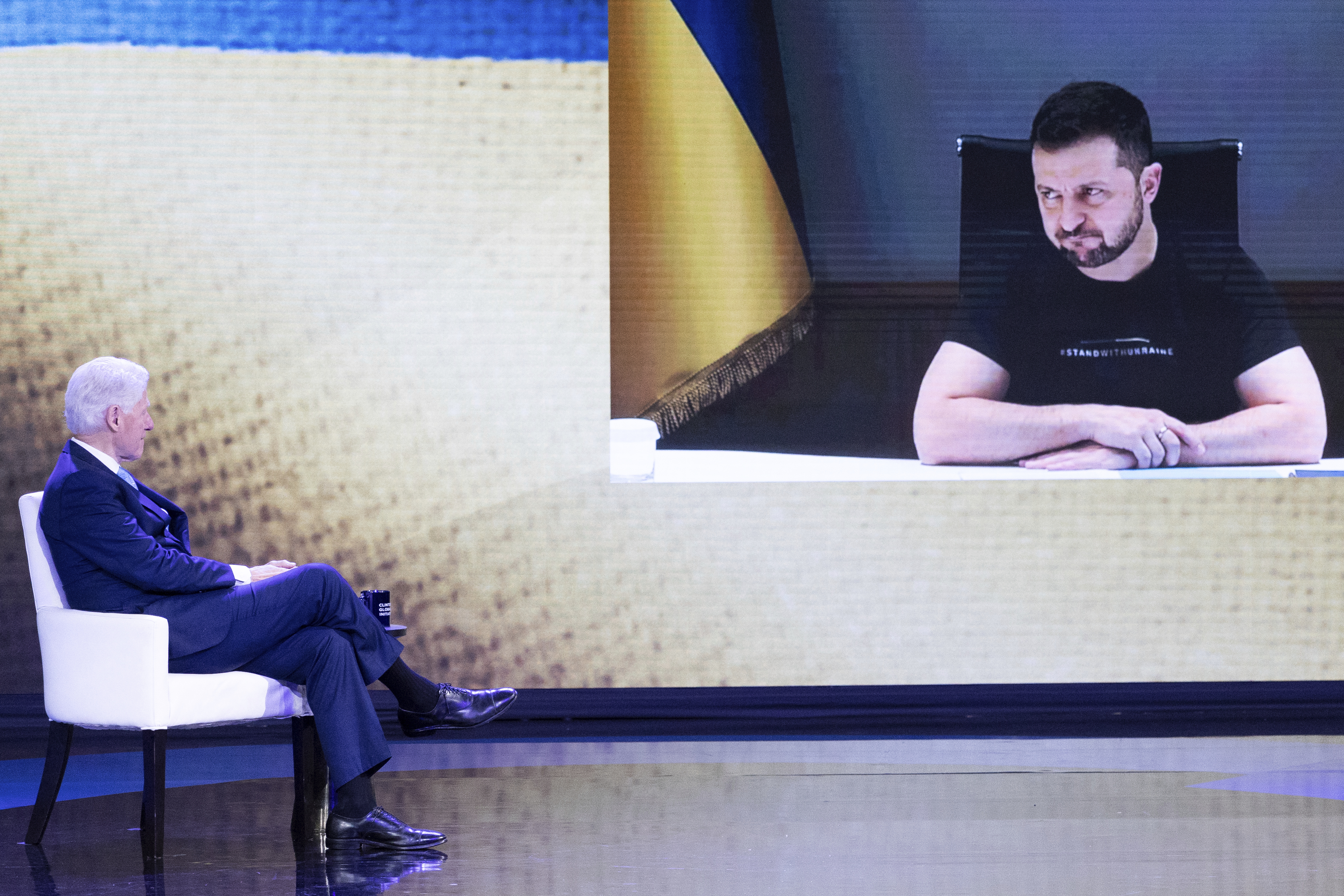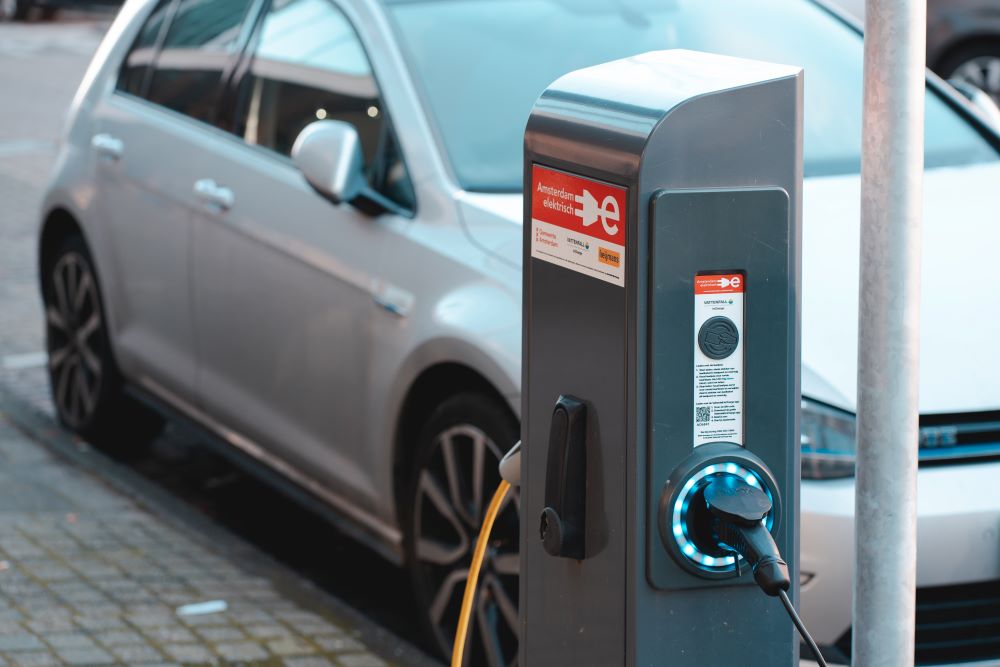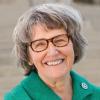
Former President Bill Clinton speaks to Ukrainian President Volodymyr Zelenskyy during the Clinton Global Initiative Sept. 20 in New York. (AP/Julia Nikhinson)
I have long known that hope is a communal virtue. But two days at the Clinton Global Initiative 2022 was a living, breathing experience of this reality. It was an embodiment of Pope Francis' call to encounter in order to shape our society for the common good.
At the beginning of the Sept. 19-20 meeting, I was a bit intimidated by the international sweep of the more than 1,200 participants. There were private funders, many government officials fresh from the United Nations and leaders of international programs. We were honored with a moving live plenary conversation between former U.S. President Bill Clinton and Ukrainian President Volodymyr Zelensky, where Zelensky asked for assistance rebuilding his country.
But, for me, hope was most palpable in the many one-on-one conversations. I met a man from Youngstown who described himself as a political conservative but was passionately committed to addressing climate change. His 15-acre farm has gone completely electric. He thinks that most of his conservative friends know that we have to change our energy profile in order to survive.
He describes it as a patriotic effort and strongly supports the recently passed Inflation Reduction Act because it not only supports conversion to renewable energy, but also supports manufacturing the batteries and infrastructure in the United States. After my many challenging conversations with political conservatives, I found this conversation to be a refreshing alternative!
Hope leapt out of my conversation with two women from Colorado who are working on water engineering to get safe drinking water to many developing nations. They were excited by their work bringing what they described as "simple technology" (which was a bit beyond my engineering expertise) to so many communities around the world. The challenge of being women in the mostly male-dominated engineering world becomes a benefit in providing water in local environments because it is the women who literally go to the well and know the meaning of having clean water piped to their homes.

One participant at the Clinton Global Initiative event described himself as a political conservative passionately committed to addressing climate change. His 15-acre farm has gone completely electric. (Unsplash/Ernest Ojeh)
A man in his late 30s was my lunch partner one day. He is originally from Virginia but has lived for many years in Somaliland. I had never heard of Somaliland, but he explained that it is a breakoff region from Somalia and has its own government and separate infrastructure. It is not recognized by any nations, but the Somali government has accepted its independence.
He is the new leader of a private school system that is working to educate girls in a way that is accepted by the Muslim leaders. They have elementary and high schools and have committed to increasing the schools over the next five years. He was most excited about the all-woman teacher's college that is training teachers that can be hired in their schools, or anywhere in the country. This investment in girls' education is changing the family and nourishing development in this little recognized corner of Africa. Hope alive in challenging times.
There were many other encounters that liberated hope into this time. Funders who committed to supporting the training of medical personnel in African countries. The excitement of seeing vibrant art in the Google Art Project from Puerto Rico and understanding the political commentary contained in some of the pieces. At the same time, we shared wonder and worry about the impact of Hurricane Fiona, just as we acknowledged the five-year anniversary of devastating Hurricane Maria.
Randi Weingarten, president of the American Federation of Teachers, spoke of the union's amazing commitment to get books into the homes of elementary school students in low-income communities. They doubled their commitment to 2 million books in the next year! Her energy and commitment are contagious and spread throughout the room.
So many stories of the communal virtue of hope. Hope anchored in commitment and action.
Then there was the reason I was there. I was on a panel discussing the opioid crisis and what can be done in our nation to address the horror. It was exciting to be on a panel with a scientist from John Hopkins University, Dr. Ellen J. MacKenzie, talking about the brain chemistry that is altered by these insidious drugs. Former U.S. Rep. Patrick Kennedy talked about his commitment to get actual parity between physical and mental health services in insurances as well as in Medicaid and Medicare. While we give lip service to equal treatment, it is missing from the reality of both health care and reimbursements.
Advertisement
My part was to report on some of the programs that we had seen around the country that work to reduce the stigma of addiction and create effective programs to address the increasing needs. These programs integrate mental health into primary care teams and allow for rapid intervention in families struggling with addiction. Such response is sometimes integrated into the faith community and can create a wholistic family-centered response.
Again the key to hope in the struggle with addiction is in communities that can support recovery, understand the clinical reality of addiction and the physical struggle to stay clean and sober. Hope is nourished by reducing the stigma of addiction and by shining a bright light on the courage and determination of those in recovery.
I learned that all of us can generate hope by educating ourselves on the topic and being willing to talk candidly and without shame about the physical disease of addiction. We hold the keys to changing this scourge of addiction and death.
As I leave two days that vibrated with hope, I know that commitment is the key to making change in our challenging world. May the encounter with others be the bedrock of the road that can lead us to a different future. Talking together about needs and opportunities can change the trajectory of our society and our world.
Let us embody this commitment to encounter and act. This is the anchor of hope and the roots of the Gospel in our time. It is global and local. We all have something that we can do to be light in our communities. Let our communities be hope in challenging times.








